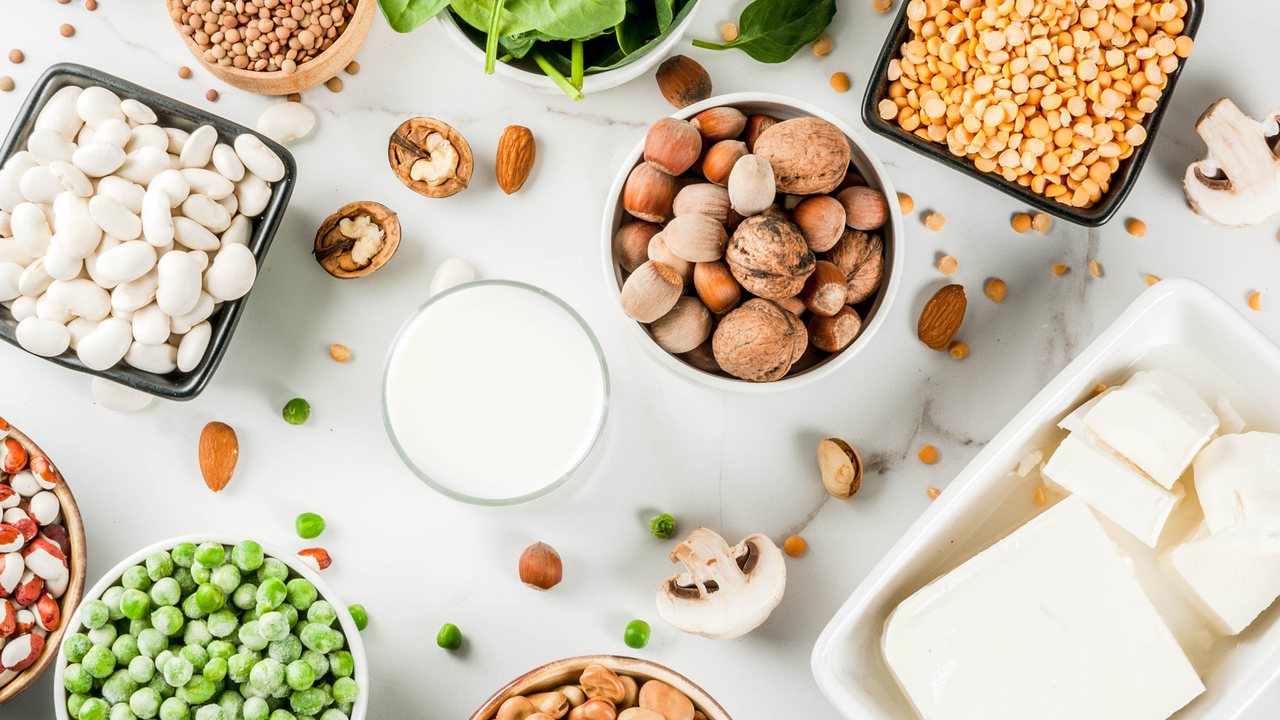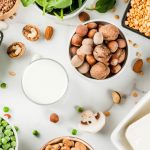Why do we need protein?
Isn’t there some other magic nutritional ingredient that we can eat instead of protein that will give us the same benefits and results?
No not really, so you have to eat it and you need find protein sources you love.
Below I’ll try and answer this question above for you about the importance of protein in your body and a few other questions while I’m at it.
But first a brief introduction to protein for you, what is protein?
What is protein?
We can thank the Greeks for the word protein which comes from the word “proteos” that means “first place or “primary”.
Proteins are long chains of amino acids that are present in every cell in your body and your body uses protein to carry out a multitude of tasks and functions crucial to life and also good health too.
There are around twenty amino acids that make up your body’s protein (some say 21 and some 22) and nine of these are classed as essential amino acids.
Essential amino acids are amino acids that can’t be manufactured by your body, so you have to get them through diet (one of the reasons we need protein), whereas non-essential amino acids can be manufactured by your body.
So protein is important for your organs, tissues, muscles, hormones and it can help every part of your body to grow, develop and function properly.
Because we can’t store these amino acids (like we can with carbohydrates and fats) we have to ensure we are getting the right amount or just a little more of the protein we need a day in our food.
This is why protein is so important as part of a well-balanced, healthy nutrition plan.
Why is protein so important for you and your body?
As you can see protein makes up a fair chunk of the body and its processes too, so this is why protein is so important for you.
Some would say that protein is necessary for good health and some would say that protein is essential for life.
Protein has its place with all of the other nutrients your body needs, it has a role to play helping them with every biological process that takes place in your body and this is why protein is so important for you and your body.
Here is a list of the possible benefits of protein and some of the ways protein may help you.
- Bodily functions
- Digestion
- Absorption of nutrients
- Growth and maintenance
- Energy production
- Muscles
- Function of enzymes
- Hormonal responses
- Improve concentration
- Brain function
- Providing structure to cells
- PH regulation
- Stabilise blood sugar levels
- Lower blood pressure
- Fluid balancing
- Bone health
- Supporting immune function
- Nutrient transporter
- Storing nutrients
- Repair of muscle tissue
- Injury repair
- Increase muscle mass
- Increase strength
- Strong skin, hair and nails
- May help with weight management
- Long term weight management
- Reduction of appetite
- Eliminate cravings
- Lower blood pressure
As you can see this list of the benefits and areas protein may help you in is pretty extensive and there is a lot to write about.
I’ll cover a few of the above for now and keep adding to the list and also the explanations over time, so make sure to bookmark this page or share on your Social Media timeline.
Reduction of appetite
The three macronutrients, carbohydrates, fats and protein all play different roles in our body.
By increasing your protein intake, it has been shown to help reduce your appetite because protein can help you feel full with less volume.
Protein can also help boost the satiety hormone which helps you feel full too.
Some of the studies show the comparison between eating a high carbohydrate breakfast and a high protein breakfast with the high protein breakfast having more effect on the reduction of appetite over time.
Also another study of note used women, they increased their protein intake from 15% to 30% of daily calories and resulted in them eating 441 less calories a day without restricting their eating habits.
So protein can certainly help you with the reduction of your appetite if that’s one of your dietary goals.
Injury repair
After an injury it is often a long road to recovery and it certainly makes sense that protein (as it forms the main building blocks of your body) can help play a big part in this.
Nutrition as a whole is essential after sustaining an injury, but studies on protein deficiencies in post injury wound healing has shown a high protein diet can give the best healing results.
Growth and Maintenance
Growth and maintenance of your body’s tissues is an important job that generally is taken care of by protein.
Most of the time your body breaks down the protein it needs to grow and repair on the run, if you end up sick, have an injury, play sports or you’re just getting older, your body’s demands for protein grows.
So as you can see, people have different protein requirements for growth and maintenance dependant on what they do.
You just have to find out what these requirements are.
Where can I get protein?
Unless you live in a remote dessert in a tent with little running water and a few cactuses around you shouldn’t have trouble finding protein to eat at home, out around town or in your local supermarket.
Protein is everywhere and in most foods too.
So when you next go to the supermarket, start to look at the food labels and you’ll get a rough idea about the protein levels in some of the foods you are buying.
I have to tell you though, it’s a rough road once you start reading food labels because once you learn what to look for you’ll realise how full of carbohydrates and sugars some processed foods are.
Here is a quick list of some of the protein foods you can easily include in your daily nutrition.
- Beef
- Chicken
- Pork
- Seafood
- Turkey
- Lentils
- Fish
- Tuna
- Salmon
- Beans
- Eggs
- Soy
- Milk
- Yogurt
- Cheese
- Peanuts
- Almonds
- Oats
- Cottage cheese
- Broccoli
- Quinoa
- Protein powder
A lot of the protein foods above are for people who eat all foods, it can get a bit tricky if you are a vegan or following a vegetarian diet, you have to think outside of the box a little in regards to making sure your daily protein needs are met.
I/we are vegetarians (although we may be classed as Pescatarian or Flexitarian because we eat fish), so we eat a lot of beans, lentils, chick peas, eggs and fish to get our protein levels up for the day.
Plan your protein and make sure are getting enough of the above foods spread throughout your meals.
This leads us nicely into the question, how much protein should you be having in a day?
How much protein should I have?
Although having a high protein intake can show some extra benefits it is not the be all and end all for everyone when you’re trying to work out how much protein you should have each day.
Most people are getting enough protein throughout the day to keep their body on track.
But it makes you wonder what would happen if you cleaned up your diet a little bit and added in a bit more protein to your day.
According to the National Health and Medical Research Council Nutrients and Dietary Energy Calculator the estimated daily requirement of protein for people aged 19 to 30 years old is 52 grams a day.
Now these are just recommendations for them and so they can’t take into account every person’s different situation and also their specific nutritional requirements.
For instance, an athlete training every day may require more protein than a person that goes to the bowls club on Saturdays and walks to the supermarket twice a week.
So do your research, trial a certain level of daily protein for a while and see how it works for you.
Remember there are complete proteins, incomplete proteins and also complementary protein sources, so you have to take into account all of the protein present in the foods you eat to get a daily protein total for you to start working with.
So do you really need protein?
I think you’d agree from the above information that protein is pretty important in your overall nutrition picture.
But in saying this, it is also just one piece of the puzzle for your daily nutrition needs, so the answer would be a yes, you really need protein in your diet.
Now we have sorted this out you have many other things to consider when trying to create your perfect daily nutrition plan.
Make sure you consider your carbohydrate, fat and other nutrient needs, as well as meal timing is another point to consider in the overall picture.
Like anything, I’d be surprised if you nail it in the first go getting everything right, so pick a start point and chop, change and evolve from there.
Remember, enjoy your food and enjoy your protein!



